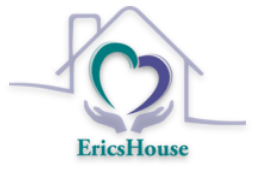Our “The Journey Onward” Men’s Group just finished our weekend retreat in Sedona.
It was powerful, moving, and exhausting. We had decided as a group to make our focus self-forgiveness. That’s a pretty tall order for a weekend, but, as I’ve observed, a pretty common challenge for survivors of loss to substance abuse or suicide.
We put so much responsibility on ourselves. It can be brutal and relentless.
I knew I had a lot to learn, so I read, I meditated on it, and then I decided to tackle it one step at a time.
First, I had to understand the relationship between shame and guilt. They’re not the same, but they can be intertwined.
Shame is about who we are – how we are inadequate, unkind, weak, uncaring, or mean-spirited. We’re all pretty good at that kind of sweeping self-judgment.
You can’t start down the path of self-forgiveness at shame, it’s systemic and overbroad. In an odd way, it’s the easy way out – what’s the point of trying to change who you fundamentally are?
So, we need to narrow our focus. Which takes us to guilt. Guilt is about things we’ve done, or failed to do; said, or failed to say. Guilt is targeted at much more specific regrets than shame.
Second, we had to select our target – one thing that we sincerely regretted in our relationship with our deceased loved one. Maybe the worst thing we believed we were responsible for, maybe the thing we believed it was possible to forgive, but only one of the many. And then, we had to narrow our focus further to a specific example of that regrettable behavior.
Third, we had to own and explore our feelings of guilt and regret. Why is that regret so deep? What, specifically, about that incident do we most regret? Why do we believe we behaved that way? It is important to authentically accept the burden of our guilt and seek to understand those feelings…not try to talk ourselves out of them.
Fourth, we express our remorse and seek to atone. We can start with apologizing to our loved one for that specific transgression. But “I’m sorry” by itself won’t cut it… yet we can’t atone to those no longer with us. So, we need to envision future opportunities to embrace similar challenges without our regrettable behaviors – a better version of ourselves. Who will receive the benefit of what we’ve learned about ourselves?
Fifth, we need a plan. Chances are the insight into those regrettable behaviors will not be sufficient by themselves to change us. How will we create the opportunity we’ve envisioned to do better?
And then we need to forgive ourselves. Not for all the myriad regrets, or for every instance in which we behaved in that oh so regrettable way. We start with forgiving ourselves for that one instance, which we now understand more deeply than we may ever have before.
It’s a small step, in the right direction.
I believe this, like dosing, is a skill we can develop through practice. We can explore our feelings of regret and guilt and extract lessons from ourselves about the most important ways we can work to become better versions of ourselves.
And finally, we plan to create more opportunities to practice being better. Eventually, I believe we can convince even ourselves that we actually have become better… and done some good along the way.



Recent Comments